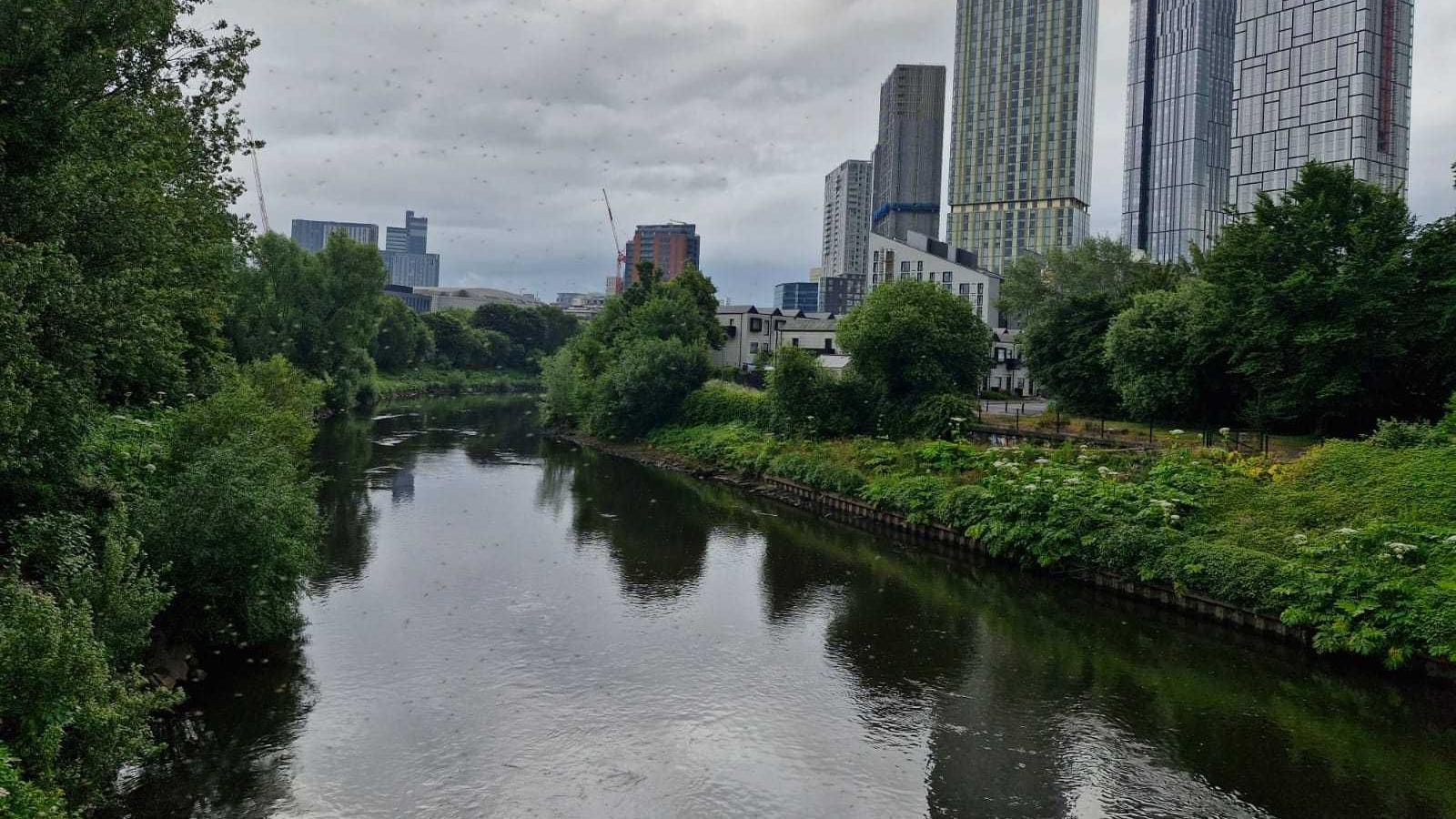Anglers fear pollution 'killing' the River Stour
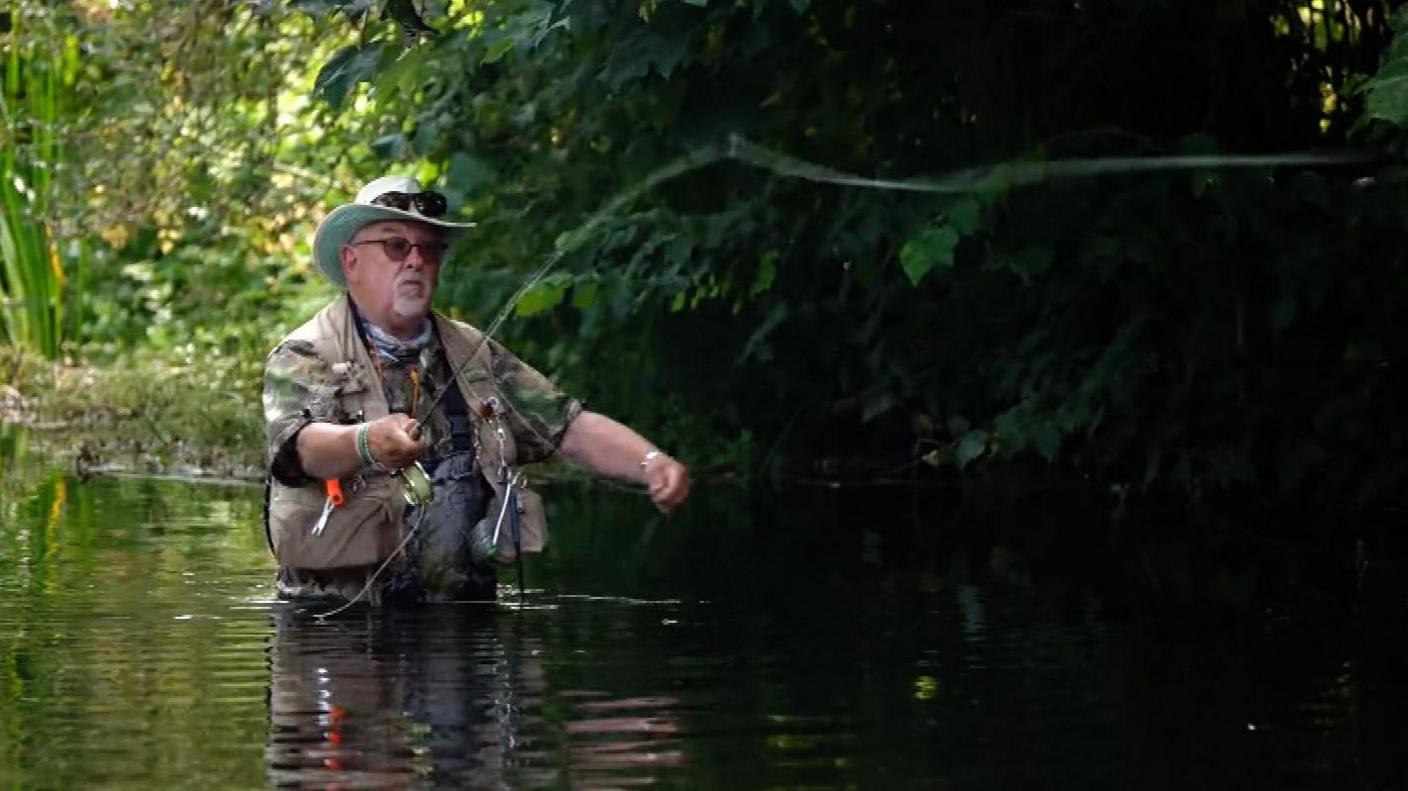
Anglers say fish are losing their habitat on the Kentish Stour
- Published
Anglers in Kent are calling for an investigation into river pollution levels, claiming in some areas all life has disappeared.
Michael Collett, a fly fisherman on the Stour chalk stream in Canterbury for nearly 60 years, said: “Parts have lost all their important weed growth, which supports invertebrates, which in turn supports fish.
"Parts of the river have effectively become dead. It's totally different to how it used to be."
Southern Water said it was working on 200 separate projects which would help make the region's rivers cleaner.
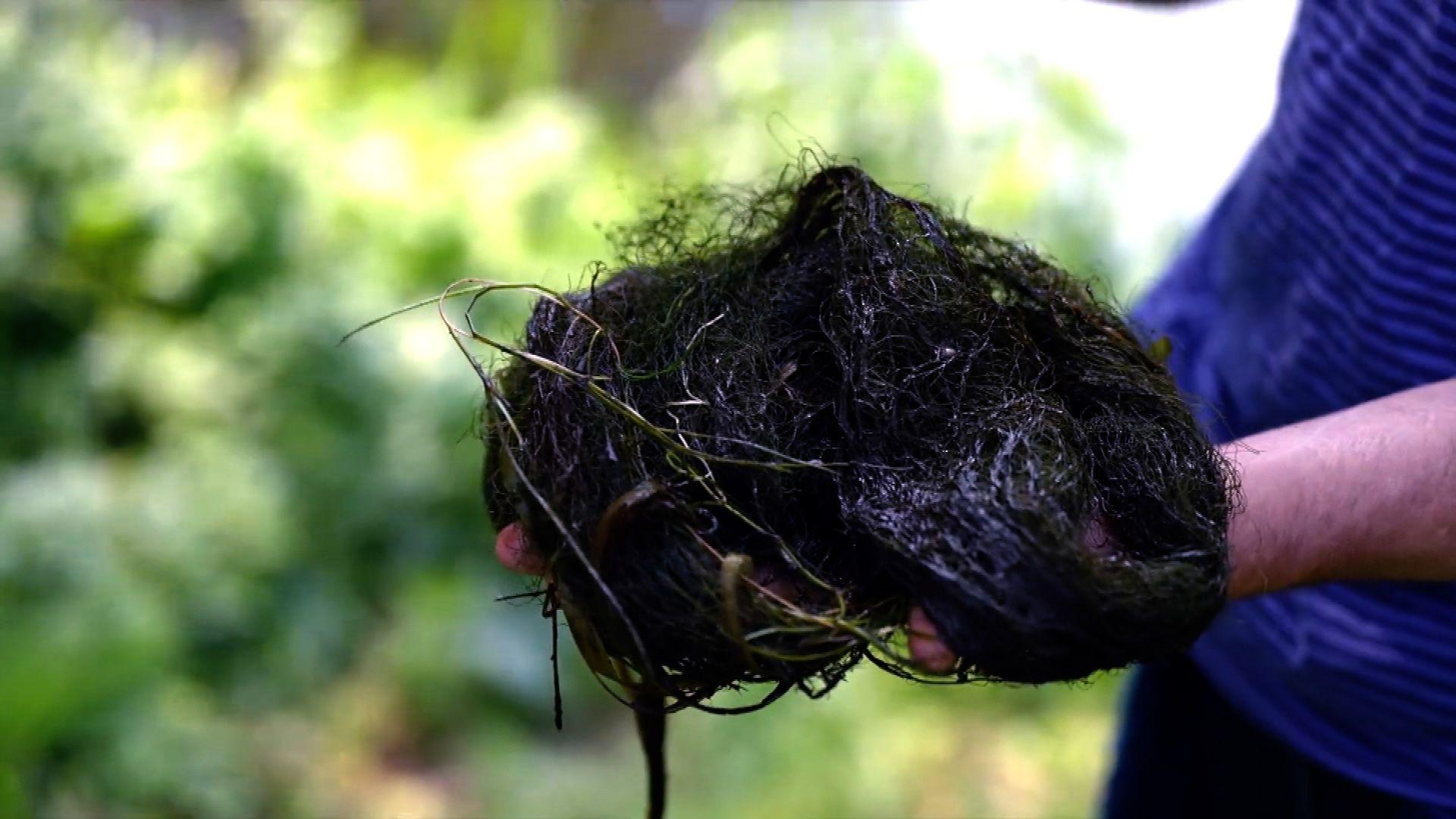
Filamentous algae smothers other plants in the Kentish Stour
Mr Collett, who belongs to the Canterbury and District Angling Association, said pollution had got worse in recent years and "is killing the river".
He said: “Numerous times I have not been able to fish due to the effluent. On several occasions the smell has made me feel sick.”
Southern Water, which has a sewage treatment plant in the area, said it was spending hundreds of millions of pounds on tackling overflows by reducing the amount of surface water that runs into sewers.
Dr Chris Gardner from the South East Rivers Trust, who visited the river this week, said there was algae in the water which grows where there is phosphate present - a detrimental nutrient which is contained in treated sewage water.
He added: "This is basically filamentous algae that grows on other plants that are in the river. It can use the nutrients that are in the water a lot quicker than the other plants can.
"It out-competes the other plants and you end up with a monoculture of filamentous algae and no other plants."

Lawrence Gosden, CEO Southern Water
Lawrence Gosden, Southern Water's CEO said cleaning rivers in the UK requires water companies working with agriculture and local authorities because there were a whole series of different sources that need to be cleaned up.
"We are installing about 200 projects right across the region, which are going to remove nutrients from clean sewage effluent, which means that when it goes into rivers it'll be a much cleaner product, which means the algae will be less, which means the river system will be cleaner."
Meanwhile on the River Grom, a tributary of the River Medway in West Kent, anglers from the Royal Tunbridge Wells Angling Society, have become citizen scientists, regularly testing the water above and below a Southern Water storm overflow pipe.
They report regular discharges of sewage, which come from Southern Water’s Tunbridge Wells South waste water treatment works.
Southern Water has given the anglers £10,000 to pay for the equipment needed to increase testing and help establish a better picture of the problem.
- Published25 July 2024

- Published25 July 2024
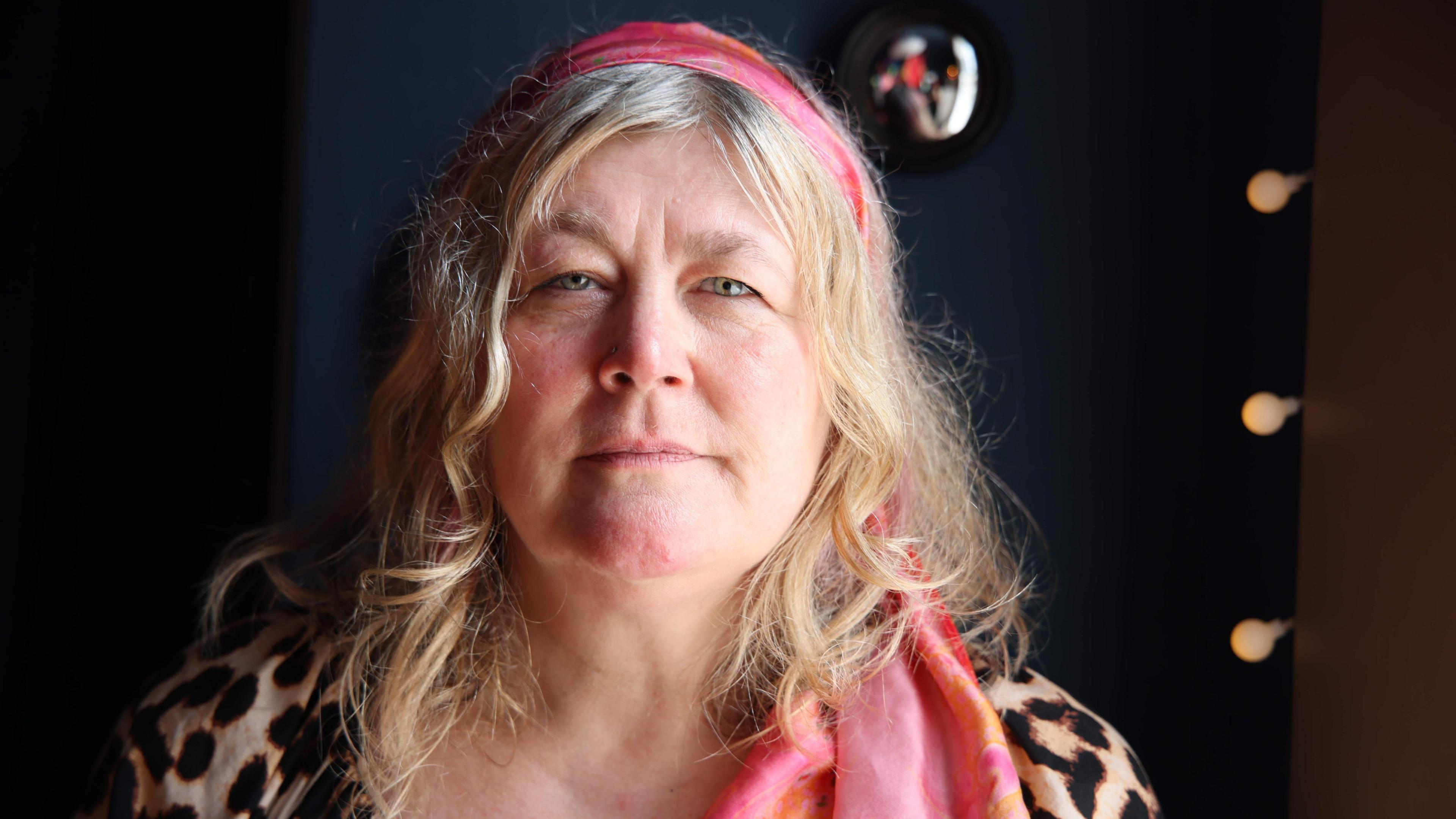
- Published25 July 2024
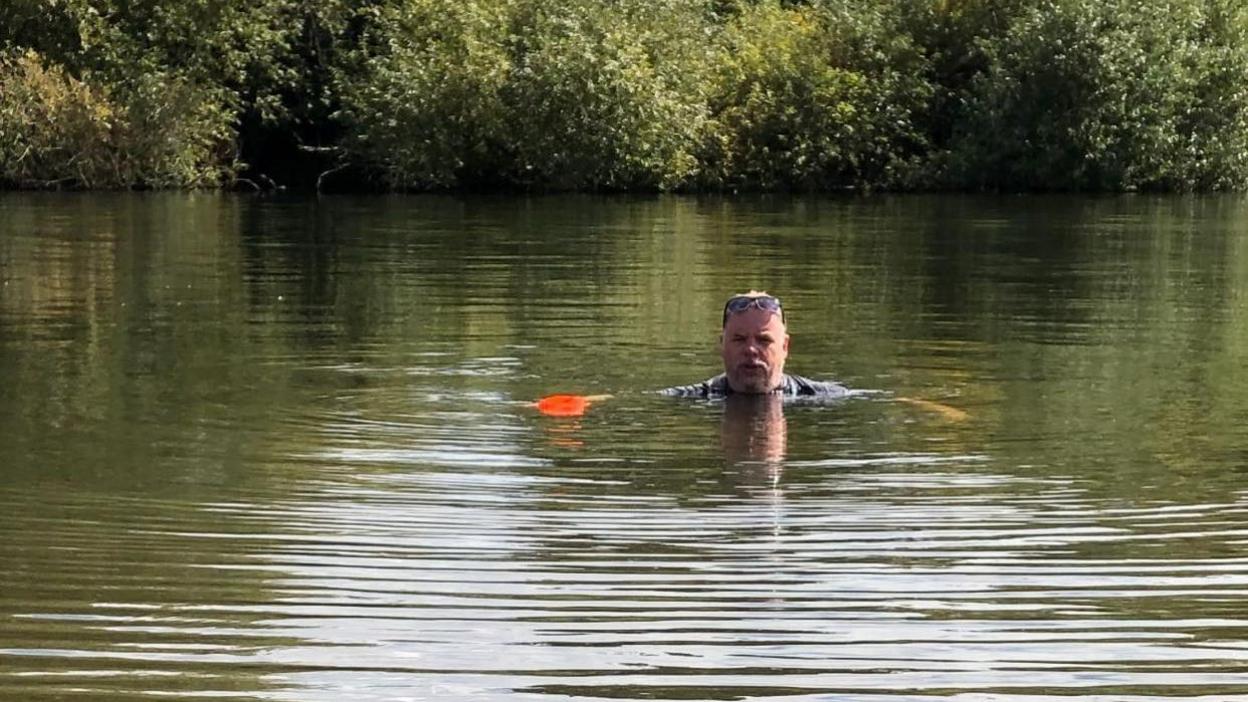
- Published23 July 2024
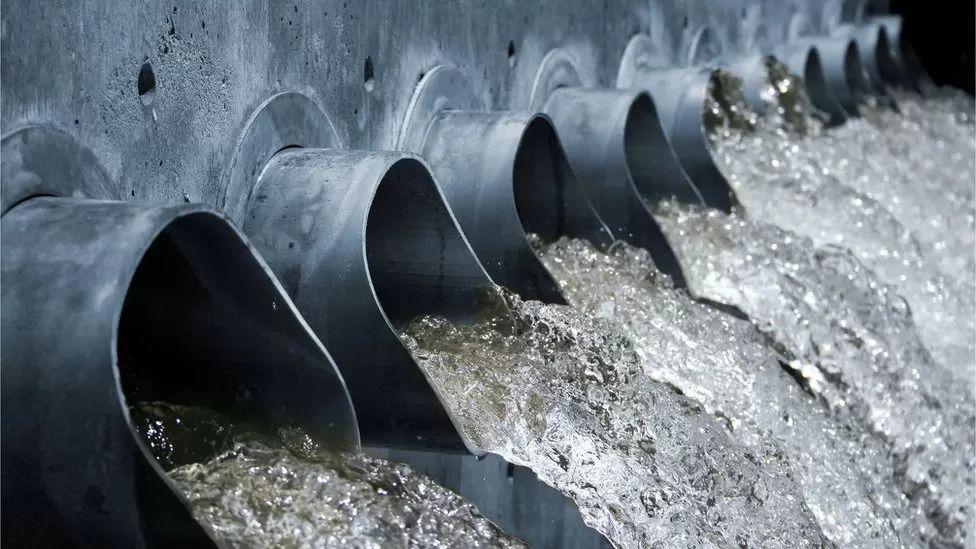
- Published4 July 2024
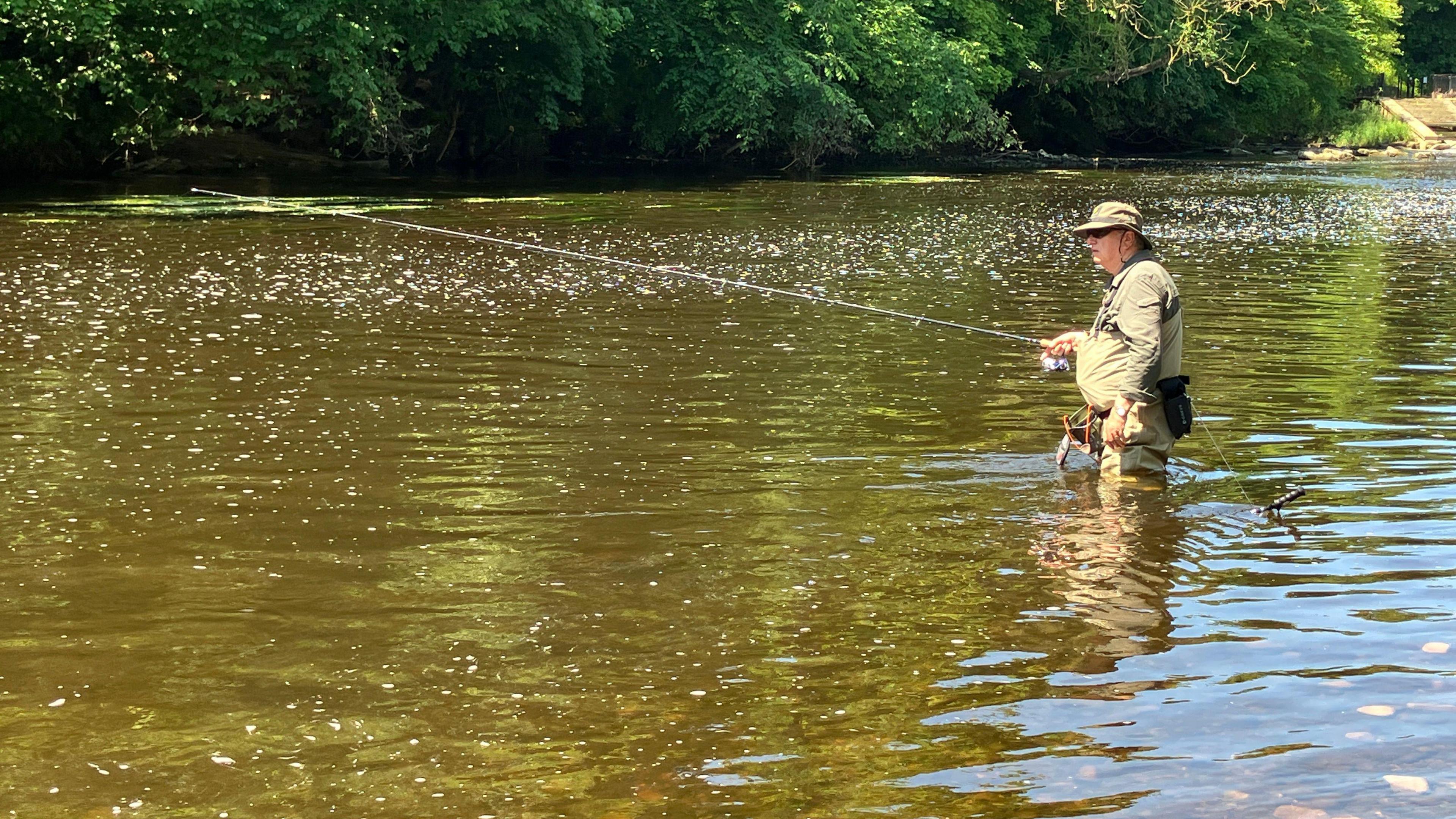
- Published19 June 2024
